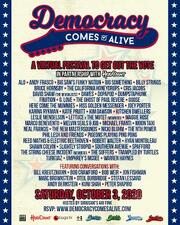New York, NY (Top40 Charts) Most of us are drawn to music. Whether we want to participate by playing instruments, listening, or singing, melodies often have the power to change our mood. Music has other benefits, aside from lifting our spirits. Schools that run music education programs can enhance their students' enthusiasm for academia. Below are the merits that come with learning music.
Acquire Language Skills Through Music
Some schools make learning a foreign language mandatory. Since most students are not linguistically gifted, acquiring a second tongue can be challenging. Keeping track of the grammar, widening your vocabulary, and assimilating syntax take plenty of time, especially for older students. Younger learners have more neuroplasticity, and they are quick at grasping another language.
Using music can help you learn a language faster. For starters, singing forces us to replicate the tonal variations, tunes, and sounds of the song. As such, our accent comes out less when we are trying to reproduce the vocals we hear in the song. We gain plenty of song lyrics in terms of the vocabulary they give us. Additionally, we can better grasp the syntax when we are interacting with music instead of reading literature in the foreign language.
Students who are non-native speakers of English can significantly improve their use of the language through music. Singing while learning lyrics can also expand their vocabulary and add on to their understanding of the syntax. Eventually, they will be able to take on essay writing assignments more confidently.
Music Helps to Improve Your Memory
Most of us experience earworms—songs that we cannot stop playing in our heads. This phenomenon demonstrates the ability of music to attach itself firmly to our memories. Studies have shown the importance of symphonies in assisting people suffering from mental illnesses that rob them of their mementos.
From an early age, students come up with mnemonic devices to help them remember facts associated with their education. These simple tools of committing difficult concepts to one's memory come in handy during tests. Moreover, students who engage in music programs while in school can gain plenty of advantages in their recollection.
Through learning music, scholars can increase their attention spans and form mental images that boost their ability to remember class content. The learners can come up with exciting ways to retain complex formulas or tricky scientific procedures. Thus, they would require less assignment help while they are doing their homework.
Music Enhances Pattern Recognition and Math Skills
When we listen to our favorite song, most of us can recall specific times in our lives when a significant event took place. We can recognize the musical arrangement of the notes, tones, and vocals to an extraordinary extent. Some of us can know what song is playing by listening to the first five seconds of it. This incredible ability demonstrates the effect music has on our pattern recognition skills.
Students who engage in music programs in school hone their skills in identifying the arrangement of notes in a piece. This technique goes a long way to help learners to enhance their computational competence. For a subject like mathematics, pattern recognition is crucial towards improving one's problem-solving expertise. Music has a direct impact on a person's know-how when it comes to seeing the big picture by identifying individual pixels. Consequently, engaging in musical learning can help you gain more understanding of other technical courses.
Music Enhances Creativity in Students
Should you play some background music while you are studying or working on an assignment? Many students grapple with this dilemma since they do not know which circumstance enhances their creativity. Experts are also debating whether this practice is advisable. Nevertheless, one's ability to concentrate determines their level of engagement and whether they can be creative.
Creativity refers to a person's competence in exercising divergent thinking. A creative person can combine seemingly unrelated ideas to solve a problem. They can also recognize obscure linkages among concepts to find innovative solutions. Lastly, we can characterize creativity as the capacity to make unforeseen modifications to information leading to resolutions of problems.
In summary, listening to upbeat music can stimulate your mind and evoke happy emotions in the listeners. If you are working on a demanding school assignment, classical tunes can help you with your creativity. When it comes to a somber study session, you may turn to a more relaxed playlist. Therefore, you should apply for the music program in your school to enjoy the numerous cognitive benefits of musical study and engagement.
























